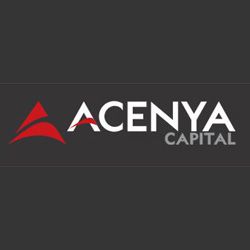After 35 years of acquisitions Braemar has many fingers in many pies. But, they are similar pies – while the widespread locations of the various business units mean that the Group spans the globe there is a focus in ship and offshore vessel services.
Thus there are both economies of scale – doing the same thing on a large scale and thus lowering average unit cost………
………. And economies of scope – doing different things which use a common company resource and so can reduce average unit cost, e.g. using the same team to cross sell services, or using the same offices and personnel to sell a variety of services, or can be complementary thereby enhancing client benefits by offering a one-stop shop or bundle of services.
Shipbroking
Annual revenue for the whole Group is around £140m – £160m. With the Shipbroking division contributing £60m – £70m it forms the largest section of the business.
Operating profit (“underlying” – before acquisition expenses, amortisation and non-recurring items) of this division in the full year to end February 2016 was £9.65m.
In the following half-year to end of August, with revenue down 7.5% compared with the previous year at £30.8m, operating profits were still a healthy £4m, down 13%.
Braemar’s shipbrokers form long-term relationships with owners of vessels, users of vessels and energy companies. They provide expert market knowledge, particularly on shipping rates (cost of hiring a ship per day). They might receive commission, project fees or charge on an hourly basis.
What really matters in this business is the number of ship transactions, i.e. number of hires, together with the value of those transactions. International trade generally rises from one year to the next and so we might expect a steady increase in the number of transactions. What can fluctuate dramatically is the price for hiring a ship for a day to transport goods.
For example, oil tanker rates at the start of 2016 were over $100,000 per day, but by August were only $19,000. If Braemar charges a fee on the money size of the ship broking deal to move oil then its income is going to be much lower in August than in January 2016.
A key index for dry bulk goods, e.g. coal, grain and ore, is the Baltic Dry Index (it combines various routes and cargo types). The chart shows its volatility over the last five years, ranging from a value of under 400 to over 2,000.

Braemar lists the business growth drivers for its shipbroking division:
•Amount of seaborne trade
•Transaction volume
•Freight rates
•Vessel values (as an agent it helps with sales)
•Quality and number of brokers it is competing against
•The extent of its geographical presence
To gain some idea of the dynamics here consider what happens if oil prices fall. This results in raised demand around the world for oil. More needs to be shipped. If the number of tankers is limited, as it often is, then rates of ship hire will rise.
However, the number of ships on the seas varies over time: there might be a period with many new ships launched and little demolition of old ships. At other times there might be few new ships and many ships coming to the end of their useful lives.
Another factor is the desirability of some oil traders, producers and consumers (e.g. refiners) to store oil in tankers sitting off the coast. They do this when, for example, oil can be bought now for say $40 but sold for delivery in the futures markets in six months for $45.
Fortunately in the year to February 2016 tanker demand was very strong and Braemar was going great guns out of its three hubs, London……………..
To read the rest of this article, and more like it, subscribe to my premium newsletter Deep Value Shares – click here http://newsletters.advfn.com/deepvalueshares/subscribe-1.

 Hot Features
Hot Features













